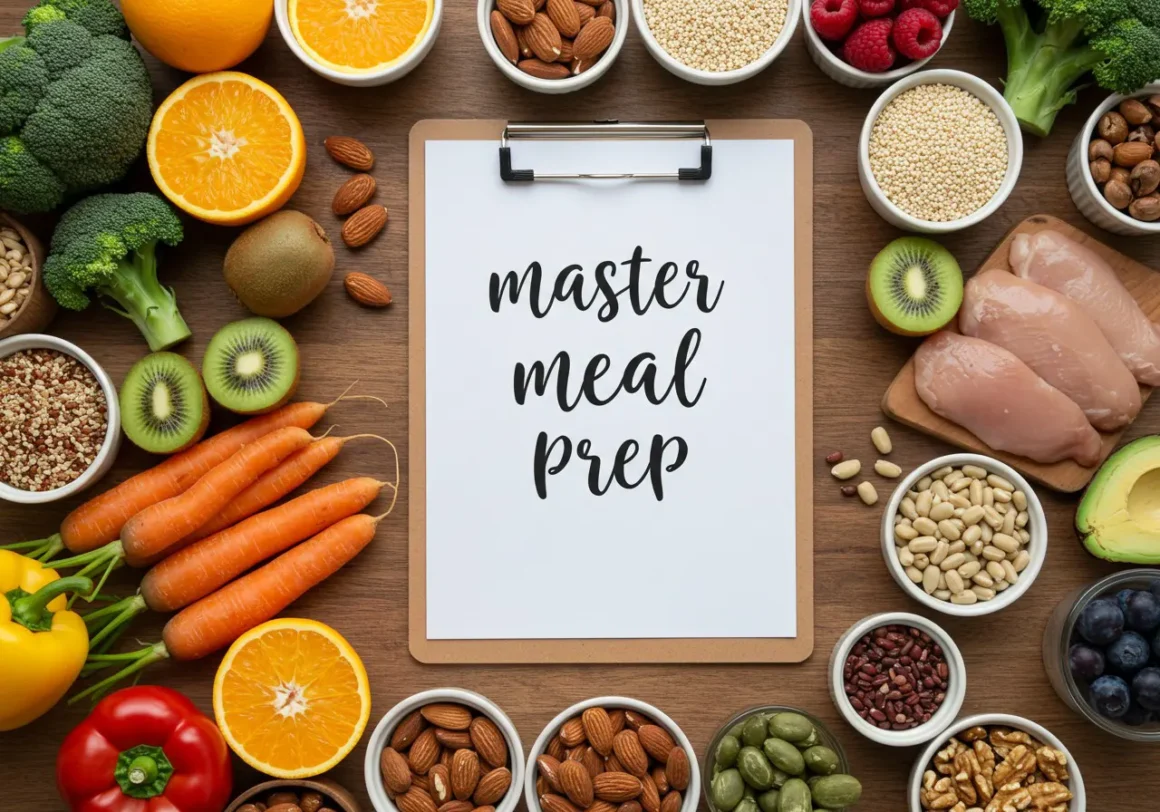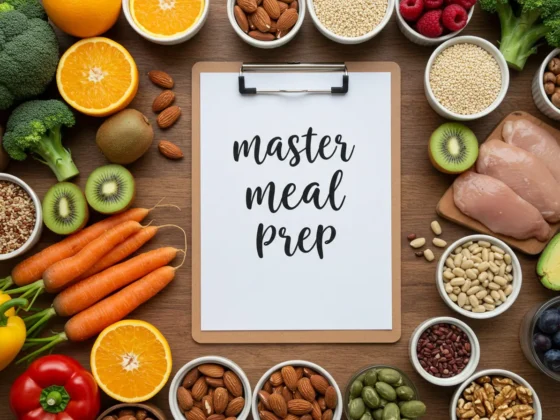Okay, let’s talk about getting off the diet rollercoaster and actually building eating habits that stick, for good. We’ve all been there, right? You jump on a new diet plan, full of motivation, maybe see some quick wins, but eventually, life happens, the restrictions feel too much, and you’re back where you started, maybe even feeling worse. The truth is, those temporary fixes rarely lead to lasting change. What really moves the needle is building sustainable habits, creating a way of eating that supports your life, your goals, and your well-being without feeling like you’re constantly fighting against yourself.
It’s less about perfect adherence to a rigid set of rules and more about creating a flexible framework that allows for real life. Think of it as shifting from a sprint to a marathon – you need a sustainable pace, not just bursts of speed. This means making conscious choices most of the time, learning to navigate challenges, and understanding that a slip-up isn’t a failure, just a moment to learn from and get back on track. It’s about progress, absolutely, but it’s definitely not about perfection.
So, why focus on habits instead of just following a diet plan? Well, diets often come with a start and end date. They can feel restrictive and deprivation can lead to cravings and ultimately, falling off track. This can create a cycle of dieting and regaining weight, which isn’t great for your physical or mental health. Habits, on the other hand, are woven into your daily routine. They become second nature. When healthy eating becomes a habit, it requires less willpower and feels less like a chore. It’s about integrating nourishing choices into your lifestyle so they become the norm, not the exception.
Before you dive into changing everything overnight, let’s talk about getting ready. It’s not about buying a ton of specific “diet” food. It’s more about a little preparation and some self-awareness.
What You Need (Preparation):
- A willingness to experiment: Not every healthy eating strategy works for everyone. Be open to trying new things and seeing what fits your life.
- Some basic kitchen staples: Having things like fruits, vegetables, lean proteins, and healthy fats readily available makes healthy choices easier. You don’t need fancy ingredients, just the basics.
- A little patience: Building habits takes time. Don’t get discouraged if it doesn’t happen instantly.
- Self-compassion: You’re going to have days where you don’t eat perfectly. That’s okay! Be kind to yourself and focus on getting back on track at your next meal or snack.
- Understanding Your “Why”: Why do you want to build healthier habits? Is it for energy, to feel better in your clothes, to improve a health marker? Connecting to your motivation helps when things get tough.
- Identifying Your Triggers: When are you most likely to make less healthy choices? Is it when you’re stressed, bored, tired, or watching TV? Knowing your triggers is the first step to managing them.
Now, the fun part – the “how-to.” This is where you start putting it into practice. Remember, start small. Don’t try to change everything at once. Pick one or two things to focus on first.
How to Build Sustainable Healthy Eating Habits:
- Start Small: Instead of a complete overhaul, pick one or two habits to build. Maybe it’s adding a serving of vegetables to dinner, eating breakfast consistently, or drinking more water. Master those, then add more.
- Focus on Adding, Not Just Subtracting: Instead of thinking about all the foods you can’t have, focus on adding nutritious foods. How can you add more fruits, vegetables, whole grains, or lean protein to your meals? This feels much less restrictive.
- Meal Planning (Even a Little): You don’t need to plan every single meal for the week in minute detail, but having a general idea of what you’ll eat helps immensely. Maybe it’s just planning dinners, or prepping some lunches on Sunday. Even minimal planning reduces decision fatigue and makes healthy choices easier when you’re busy.
- Mindful Eating: This is huge. Pay attention to your body’s hunger and fullness cues. Eat slowly, without distractions, and savor your food. This helps you recognize when you’re truly hungry and when you’re just eating out of habit or emotion.
- Identify and Manage Triggers: Once you know your triggers, develop strategies. If you stress eat, find other ways to manage stress (a quick walk, deep breathing, calling a friend). If you eat when bored, find a different activity.
- Find Healthy Swaps: Love pasta? Try whole wheat pasta or spiralized veggies. Craving something sweet? Have some fruit or Greek yogurt. Find healthier versions of foods you enjoy.
- Don’t Strive for Perfection: Seriously, let go of the idea that you have to eat perfectly all the time. There will be birthdays, holidays, and days when you just want pizza. Enjoy those moments without guilt, and then just get back to your regular habits at the next meal. Consistency over perfection is the mantra here.
- Prioritize Protein and Fiber: These two nutrients are key for feeling full and satisfied, which helps prevent overeating and constant snacking. Make sure your meals include sources of both.
- Stay Hydrated: Sometimes thirst can masquerade as hunger. Drinking enough water throughout the day can help manage cravings and keep you feeling good.
- Learn Basic Nutrition: You don’t need a degree, but understanding the basics of macronutrients (carbs, protein, fat) and micronutrients (vitamins, minerals) can help you make more informed choices.
Tools and Resources:
You don’t need a lot of fancy gadgets. Simple tools are often the most effective.
- Reliable Food Scales/Measuring Cups: Helpful for getting a sense of portion sizes, especially when you’re starting out.
- Meal Planning Apps or Journals: If you like digital tools, there are many apps that can help you plan meals and track what you eat (if that’s something you find helpful – it’s not necessary for everyone). A simple notebook works just as well.
- Reputable Nutrition Websites or Books: Look for resources from registered dietitians or established health organizations, not just the latest fad diet book.
- Consider a Registered Dietitian: If you have specific health concerns or feel overwhelmed, a registered dietitian can provide personalized guidance and support.
Building sustainable healthy eating habits is a journey, and it’s one that’s incredibly rewarding. It’s about making small, consistent choices that compound over time. It’s about learning to listen to your body, finding joy in nourishing yourself, and creating a relationship with food that is positive and sustainable, not one of constant restriction and guilt. So, ditch the diet mentality, embrace the process of building habits, and enjoy the lasting benefits of a healthier, more vibrant you.

















